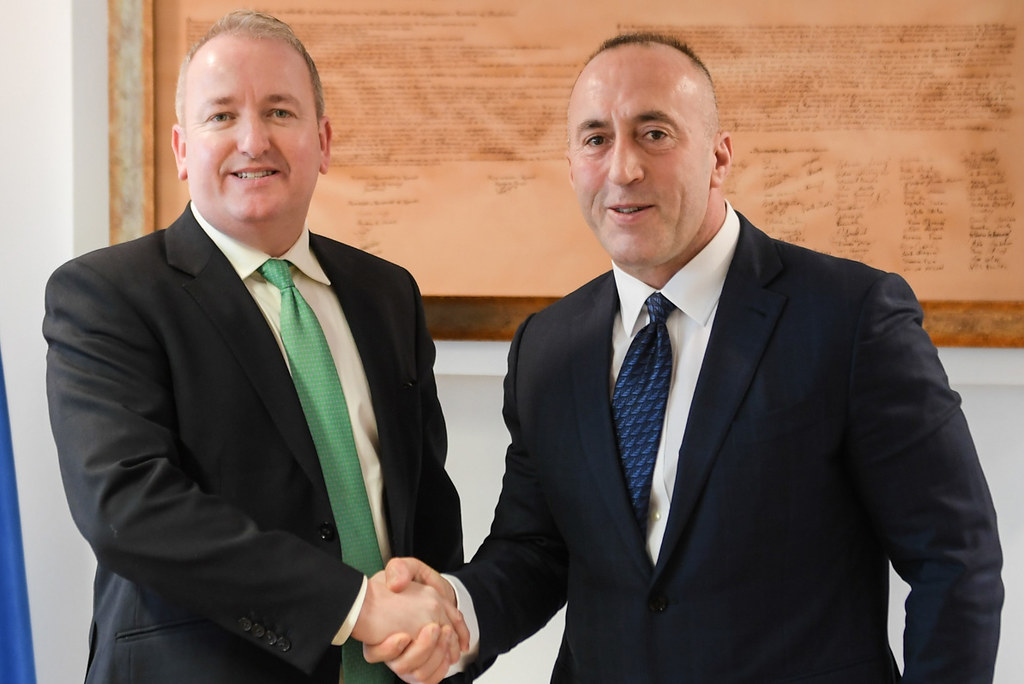
File photograph: British MP Mark Pritchard meets Ramush Haradinaj in Pristina, 31 Jan. 2019
As Kosovo heads into a snap election today, the issues of alleged war crimes, independence recognition and continued tensions with Serbia continue to dominate the political debate, reports the BBC.
Kosovo’s current prime minister Ramush Haradinaj, a former commander in the Kosovo Liberation Army (KLA), announced in June that he was stepping down in order to face questioning at the Hague over alleged war crimes. Haradinaj has twice been acquitted by previous Hague tribunals over alleged war crimes committed in the 1990s, during the conflict with Serbian forces.
However, his visit to The Hague may win his AAK party popular support amongst Kosovo’s Albanians.
“The fact that he has been called before the tribunal is seen by many Kosovo Albanians as a deep injustice," says James Ker-Lindsay, a Balkans specialist at the London School of Economics told the BBC.
"This is seen as calling into question Kosovo's right to exist. People believe that what the leaders were doing during the war was legitimate. They were fighting a campaign against Serbian oppression and should not be held accountable for this - and Haradinaj was a hero of this conflict."
Last year Haradinaj imposed a 100% tariff on goods from neighbouring Serbia, as tensions between the two mounted. Though the policy increased prices the price of goods in many parts of Kosovo, it still proved popular amongst locals. The move came as Serbia announced it was working on lobbying countries across the world to withdraw recognition of Kosovo, after the region announced a unilateral declaration of independence in 2008. Kosovo claims it is recognised by 116 of the UN's 193 member states, but Serbia says the figure is only 97.
"The way out of where we are is a comprehensive agreement on recognition between Serbia and Kosovo," Haradinaj told the BBC.
"That would resolve not only the tariffs, but every other dispute between two nations that are neighbours. We are ready to stand up for ourselves forever - we have no alternative."
See more from the BBC here.
